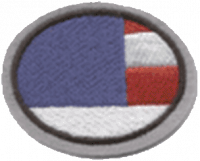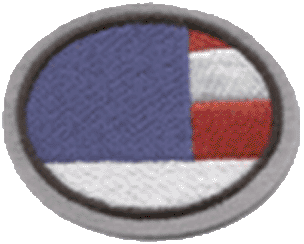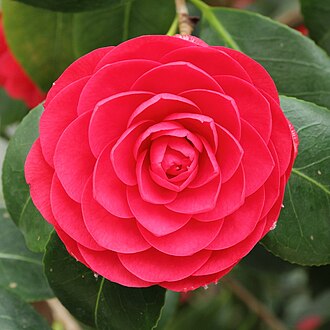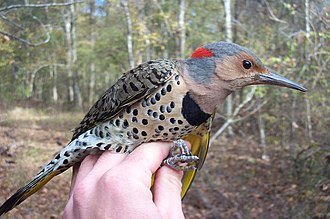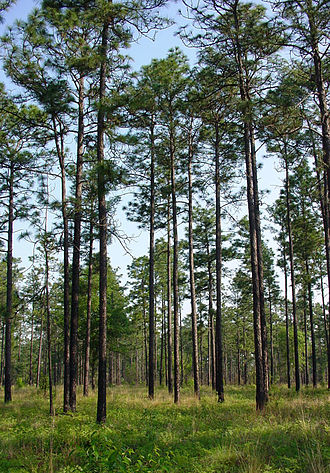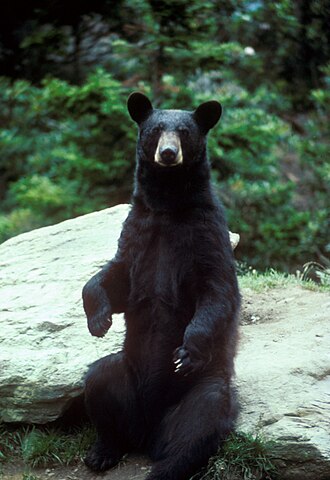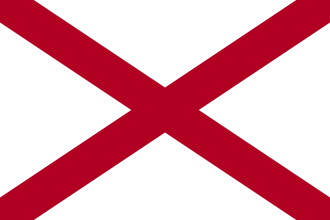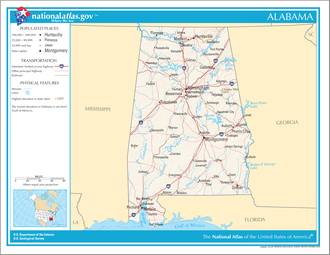Difference between revisions of "AY Honors/State Study/Answer Key"
JadeDragon (talk | contribs) |
|||
| (8 intermediate revisions by 2 users not shown) | |||
| Line 1: | Line 1: | ||
| − | {{ | + | {{HonorSubpage}} |
| − | |||
| − | |||
| − | |||
| − | |||
| − | |||
| − | + | <section begin="Body" /> | |
| + | {{ansreq|page={{#titleparts:{{PAGENAME}}|2|1}}|num=1}} | ||
| + | <noinclude><translate><!--T:13--> | ||
| + | </noinclude> | ||
| + | <!-- 1. Make a scrapbook to include the following information. Use pictures, maps, or drawings to make it attractive.* --> | ||
| − | = | + | <!--T:14--> |
| − | + | <noinclude></translate></noinclude> | |
| − | + | {{CloseReq}} <!-- 1 --> | |
| + | {{ansreq|page={{#titleparts:{{PAGENAME}}|2|1}}|num=2}} | ||
| + | <noinclude><translate><!--T:15--> | ||
| + | </noinclude> | ||
| + | <!-- 2. Name the state and the year it joined the union. --> | ||
Alabama became a state on the 14th of December of 1819, the 22nd state to join the Union. | Alabama became a state on the 14th of December of 1819, the 22nd state to join the Union. | ||
| − | ==3. Draw or find a picture of the following:== | + | <!--T:16--> |
| − | + | <noinclude></translate></noinclude> | |
| + | {{CloseReq}} <!-- 2 --> | ||
| + | {{ansreq|page={{#titleparts:{{PAGENAME}}|2|1}}|num=3}} | ||
| + | <noinclude><translate><!--T:17--> | ||
| + | </noinclude> | ||
| + | <!-- 3. Draw or find a picture of the following: --> | ||
| + | <noinclude></translate></noinclude> | ||
| + | {{ansreq|page={{#titleparts:{{PAGENAME}}|2|1}}|num=3a}} | ||
| + | <noinclude><translate><!--T:18--> | ||
| + | </noinclude> | ||
The Alabama state flower is the Camellia ''(Camellia japonica L.)''. | The Alabama state flower is the Camellia ''(Camellia japonica L.)''. | ||
| + | <!--T:19--> | ||
[[File:Camellia japonica-IMG 2052.jpg|thumb|center|300px|Camellia ''(Camellia japonica L.)'']] | [[File:Camellia japonica-IMG 2052.jpg|thumb|center|300px|Camellia ''(Camellia japonica L.)'']] | ||
{{clear}} | {{clear}} | ||
| − | == | + | <!--T:20--> |
| + | <noinclude></translate></noinclude> | ||
| + | {{CloseReq}} <!-- 3a --> | ||
| + | {{ansreq|page={{#titleparts:{{PAGENAME}}|2|1}}|num=3b}} | ||
| + | <noinclude><translate><!--T:21--> | ||
| + | </noinclude> | ||
The Alabama state bird is the Northern Flicker (Yellowhammer) ''(Colaptes auratus)''. | The Alabama state bird is the Northern Flicker (Yellowhammer) ''(Colaptes auratus)''. | ||
| + | <!--T:22--> | ||
[[File:Colaptes auratus auratus1.jpg|thumb|center|300px|Northern Flicker ''(Colaptes auratus)'']] | [[File:Colaptes auratus auratus1.jpg|thumb|center|300px|Northern Flicker ''(Colaptes auratus)'']] | ||
{{clear}} | {{clear}} | ||
| − | == | + | <!--T:23--> |
| + | <noinclude></translate></noinclude> | ||
| + | {{CloseReq}} <!-- 3b --> | ||
| + | {{ansreq|page={{#titleparts:{{PAGENAME}}|2|1}}|num=3c}} | ||
| + | <noinclude><translate><!--T:24--> | ||
| + | </noinclude> | ||
The Alabama state tree is the Longleaf Pine ''(Pinus palustris)''. | The Alabama state tree is the Longleaf Pine ''(Pinus palustris)''. | ||
| + | <!--T:25--> | ||
[[File:Pinus palustris UGA1.jpg|thumb|center|300px|Longleaf Pine ''(Pinus palustris)'']] | [[File:Pinus palustris UGA1.jpg|thumb|center|300px|Longleaf Pine ''(Pinus palustris)'']] | ||
{{clear}} | {{clear}} | ||
| − | == | + | <!--T:26--> |
| + | <noinclude></translate></noinclude> | ||
| + | {{CloseReq}} <!-- 3c --> | ||
| + | {{ansreq|page={{#titleparts:{{PAGENAME}}|2|1}}|num=3d}} | ||
| + | <noinclude><translate><!--T:27--> | ||
| + | </noinclude> | ||
The Alabama state animal is the American Black Bear ''(Ursus americanus)''. | The Alabama state animal is the American Black Bear ''(Ursus americanus)''. | ||
| + | <!--T:28--> | ||
[[File:Black bear large.jpg|thumb|center|300px|American Black Bear ''(Ursus americanus)'']] | [[File:Black bear large.jpg|thumb|center|300px|American Black Bear ''(Ursus americanus)'']] | ||
{{clear}} | {{clear}} | ||
| − | == | + | <!--T:29--> |
| + | <noinclude></translate></noinclude> | ||
| + | {{CloseReq}} <!-- 3d --> | ||
| + | {{ansreq|page={{#titleparts:{{PAGENAME}}|2|1}}|num=3e}} | ||
| + | <noinclude><translate><!--T:30--> | ||
| + | </noinclude> | ||
| + | <!--T:31--> | ||
[[File:Flag of Alabama.svg|thumb|center|300px|Flag of Alabama]] | [[File:Flag of Alabama.svg|thumb|center|300px|Flag of Alabama]] | ||
{{clear}} | {{clear}} | ||
| − | ==4. Name the state song and motto. | + | <!--T:32--> |
| + | <noinclude></translate></noinclude> | ||
| + | {{CloseReq}} <!-- 3e --> | ||
| + | {{CloseReq}} <!-- 3 --> | ||
| + | {{ansreq|page={{#titleparts:{{PAGENAME}}|2|1}}|num=4}} | ||
| + | <noinclude><translate><!--T:33--> | ||
| + | </noinclude> | ||
| + | <!-- 4. Name the state song and motto. --> | ||
The Alabama state song is "Alabama". It was written by Julia Tutwiler and composed by Edna Gockel-Gussen and adopted in 1931.<br> | The Alabama state song is "Alabama". It was written by Julia Tutwiler and composed by Edna Gockel-Gussen and adopted in 1931.<br> | ||
<br> | <br> | ||
The motto is "Audemus jura nostra defendere." | The motto is "Audemus jura nostra defendere." | ||
| − | ==5. Draw a map and show the capital, major cities, rivers, and lakes. | + | <!--T:34--> |
| + | <noinclude></translate></noinclude> | ||
| + | {{CloseReq}} <!-- 4 --> | ||
| + | {{ansreq|page={{#titleparts:{{PAGENAME}}|2|1}}|num=5}} | ||
| + | <noinclude><translate><!--T:35--> | ||
| + | </noinclude> | ||
| + | <!-- 5. Draw a map and show the capital, major cities, rivers, and lakes. --> | ||
| + | <!--T:36--> | ||
[[File:Map of Alabama NA.png|thumb|center|300px|Map of Alabama]] | [[File:Map of Alabama NA.png|thumb|center|300px|Map of Alabama]] | ||
{{clear}} | {{clear}} | ||
| − | ==6. Name the national parks and three state parks. | + | <!--T:37--> |
| + | <noinclude></translate></noinclude> | ||
| + | {{CloseReq}} <!-- 5 --> | ||
| + | {{ansreq|page={{#titleparts:{{PAGENAME}}|2|1}}|num=6}} | ||
| + | <noinclude><translate><!--T:38--> | ||
| + | </noinclude> | ||
| + | <!-- 6. Name the national parks and three state parks. --> | ||
| − | ===National Parks=== | + | ===National Parks=== <!--T:39--> |
'''Horseshoe Bend NATIONAL MILITARY PARK''' | '''Horseshoe Bend NATIONAL MILITARY PARK''' | ||
Daviston, AL | Daviston, AL | ||
| + | <!--T:40--> | ||
On 27 March 1814, Major General Andrew Jackson ‘s army of 3,300 men attacked Chief Menawa’s 1,000 Red Stick Creek warriors fortified in a horseshoe shaped bend of the Tallapoosa River. Over 800 Red Sticks died that day. The battle ended the Creek War, resulted in a land cession of 23,000,000 acres to the United States and created a national hero of Andrew Jackson. | On 27 March 1814, Major General Andrew Jackson ‘s army of 3,300 men attacked Chief Menawa’s 1,000 Red Stick Creek warriors fortified in a horseshoe shaped bend of the Tallapoosa River. Over 800 Red Sticks died that day. The battle ended the Creek War, resulted in a land cession of 23,000,000 acres to the United States and created a national hero of Andrew Jackson. | ||
A View of the Horseshoe Bend Battlefield. | A View of the Horseshoe Bend Battlefield. | ||
| + | <!--T:41--> | ||
'''Little River Canyon NATIONAL PRESERVE''' | '''Little River Canyon NATIONAL PRESERVE''' | ||
Fort Payne, AL | Fort Payne, AL | ||
| + | <!--T:42--> | ||
Little River is unique because it flows for most of its length atop Lookout Mountain in northeast Alabama. Forested uplands, waterfalls, canyon rims and bluffs, pools, boulders, and sandstone cliffs offer settings for a variety of recreational activities. Natural resources and cultural heritage come together to tell the story of the Preserve, a special place in the Southern Appalachians. | Little River is unique because it flows for most of its length atop Lookout Mountain in northeast Alabama. Forested uplands, waterfalls, canyon rims and bluffs, pools, boulders, and sandstone cliffs offer settings for a variety of recreational activities. Natural resources and cultural heritage come together to tell the story of the Preserve, a special place in the Southern Appalachians. | ||
| + | <!--T:43--> | ||
'''Muscle Shoals NATIONAL HERITAGE AREA''' | '''Muscle Shoals NATIONAL HERITAGE AREA''' | ||
| + | <!--T:44--> | ||
The Tennessee River brought the early Native Americans and then the European settlers. For years, it frustrated those who tried to cross it or tame it. Men fought from its banks and others found power from its waters. It created a culture. It shaped a region. The region’s sites, buildings, and relics whisper tales of some of the nation’s biggest moments and how the river played a role in each. | The Tennessee River brought the early Native Americans and then the European settlers. For years, it frustrated those who tried to cross it or tame it. Men fought from its banks and others found power from its waters. It created a culture. It shaped a region. The region’s sites, buildings, and relics whisper tales of some of the nation’s biggest moments and how the river played a role in each. | ||
| + | <!--T:45--> | ||
'''Natchez Trace PARKWAY''' | '''Natchez Trace PARKWAY''' | ||
In the states of, AL,MS,TN | In the states of, AL,MS,TN | ||
| + | <!--T:46--> | ||
The Natchez Trace Parkway is a 444-mile drive through exceptional scenery and 10,000 years of North American history. Used by American Indians, "Kaintucks," settlers, and future presidents, the Old Trace played an important role in American history. Today, visitors can enjoy not only a scenic drive but also hiking, biking, horseback riding, and camping. | The Natchez Trace Parkway is a 444-mile drive through exceptional scenery and 10,000 years of North American history. Used by American Indians, "Kaintucks," settlers, and future presidents, the Old Trace played an important role in American history. Today, visitors can enjoy not only a scenic drive but also hiking, biking, horseback riding, and camping. | ||
| + | <!--T:47--> | ||
'''Russell Cave NATIONAL MONUMENT''' | '''Russell Cave NATIONAL MONUMENT''' | ||
Bridgeport, AL | Bridgeport, AL | ||
| + | <!--T:48--> | ||
Russell Cave is an archaeological site with one of the most complete records of prehistoric cultures in the Southeast. Thousands of years ago a portion of Russell Cave's entrance collapsed, creating a shelter that, for more than 10,000 years, was home to prehistoric peoples. Today it provides clues to the daily lifeways of early North American inhabitants dating from 10,000 B.C. to 1650 A.D. | Russell Cave is an archaeological site with one of the most complete records of prehistoric cultures in the Southeast. Thousands of years ago a portion of Russell Cave's entrance collapsed, creating a shelter that, for more than 10,000 years, was home to prehistoric peoples. Today it provides clues to the daily lifeways of early North American inhabitants dating from 10,000 B.C. to 1650 A.D. | ||
| + | <!--T:49--> | ||
'''Selma To Montgomery NATIONAL HISTORIC TRAIL''' | '''Selma To Montgomery NATIONAL HISTORIC TRAIL''' | ||
Montgomery, Lowndes & Dallas Counties, AL | Montgomery, Lowndes & Dallas Counties, AL | ||
| + | <!--T:50--> | ||
On August 6, 1965, President Lyndon Johnson signed, the Voting Rights Act of 1965, which extended equal voting rights for African-Americans. As both White and Black non-violent supporters led by Dr. Martin Luther King Jr. fought for the right to vote in Central Alabama, today, you can trace their march toward freedom on the 54-mile trail and connect with their stories at the Interpretive Centers. | On August 6, 1965, President Lyndon Johnson signed, the Voting Rights Act of 1965, which extended equal voting rights for African-Americans. As both White and Black non-violent supporters led by Dr. Martin Luther King Jr. fought for the right to vote in Central Alabama, today, you can trace their march toward freedom on the 54-mile trail and connect with their stories at the Interpretive Centers. | ||
| + | <!--T:51--> | ||
'''Trail Of Tears NATIONAL HISTORIC TRAIL''' | '''Trail Of Tears NATIONAL HISTORIC TRAIL''' | ||
In the states of AL,AR,GA,IL,KY,MO,NC,OK,TN | In the states of AL,AR,GA,IL,KY,MO,NC,OK,TN | ||
| + | <!--T:52--> | ||
Remember and commemorate the survival of the Cherokee people, forcefully removed from their homelands in Georgia, Alabama, and Tennessee to live in Indian Territory, now Oklahoma. They traveled by foot, horse, wagon, or steamboat in 1838-1839. | Remember and commemorate the survival of the Cherokee people, forcefully removed from their homelands in Georgia, Alabama, and Tennessee to live in Indian Territory, now Oklahoma. They traveled by foot, horse, wagon, or steamboat in 1838-1839. | ||
Trail of Tears artwork and trail walk | Trail of Tears artwork and trail walk | ||
| + | <!--T:53--> | ||
'''Tuskegee Airmen NATIONAL HISTORIC SITE''' | '''Tuskegee Airmen NATIONAL HISTORIC SITE''' | ||
Tuskegee, AL | Tuskegee, AL | ||
| + | <!--T:54--> | ||
Before the first African American military pilots became known as the "Red Tails" they wore striped tails as they began their flight training in the Army's PT-17 Stearman bi-plane. Their flying adventure started at Moton Field, in Tuskegee, Alabama, where the Army Air Corps began a military "experiment" to see if Negroes could be trained to fly combat aircraft. Come--share their adventure!! | Before the first African American military pilots became known as the "Red Tails" they wore striped tails as they began their flight training in the Army's PT-17 Stearman bi-plane. Their flying adventure started at Moton Field, in Tuskegee, Alabama, where the Army Air Corps began a military "experiment" to see if Negroes could be trained to fly combat aircraft. Come--share their adventure!! | ||
| + | <!--T:55--> | ||
'''Tuskegee Institute NATIONAL HISTORIC SITE''' | '''Tuskegee Institute NATIONAL HISTORIC SITE''' | ||
Tuskegee Institute, AL | Tuskegee Institute, AL | ||
| + | <!--T:56--> | ||
In 1881, Booker T. Washington arrived in Alabama and started building Tuskegee Institute both in reputation and literally brick by brick. He recruited the best and the brightest to come and teach here including George Washington Carver who arrived in 1896. Carver’s innovations in agriculture, especially with peanuts, expanded Tuskegee’s standing throughout the country. The story continues…. | In 1881, Booker T. Washington arrived in Alabama and started building Tuskegee Institute both in reputation and literally brick by brick. He recruited the best and the brightest to come and teach here including George Washington Carver who arrived in 1896. Carver’s innovations in agriculture, especially with peanuts, expanded Tuskegee’s standing throughout the country. The story continues…. | ||
| − | ===State Parks=== | + | ===State Parks=== <!--T:57--> |
| − | ==7. Name at least two natural resources, major products, and industries, etc. | + | <!--T:58--> |
| + | <noinclude></translate></noinclude> | ||
| + | {{CloseReq}} <!-- 6 --> | ||
| + | {{ansreq|page={{#titleparts:{{PAGENAME}}|2|1}}|num=7}} | ||
| + | <noinclude><translate><!--T:59--> | ||
| + | </noinclude> | ||
| + | <!-- 7. Name at least two natural resources, major products, and industries, etc. --> | ||
| − | ==8. Name at least three interesting places to visit. | + | <!--T:60--> |
| + | <noinclude></translate></noinclude> | ||
| + | {{CloseReq}} <!-- 7 --> | ||
| + | {{ansreq|page={{#titleparts:{{PAGENAME}}|2|1}}|num=8}} | ||
| + | <noinclude><translate><!--T:61--> | ||
| + | </noinclude> | ||
| + | <!-- 8. Name at least three interesting places to visit. --> | ||
| − | ==9. Name the Seventh-day Adventist conference president. | + | <!--T:62--> |
| + | <noinclude></translate></noinclude> | ||
| + | {{CloseReq}} <!-- 8 --> | ||
| + | {{ansreq|page={{#titleparts:{{PAGENAME}}|2|1}}|num=9}} | ||
| + | <noinclude><translate><!--T:63--> | ||
| + | </noinclude> | ||
| + | <!-- 9. Name the Seventh-day Adventist conference president. --> | ||
| − | ==10. Name the city where the conference office is located. | + | <!--T:64--> |
| + | <noinclude></translate></noinclude> | ||
| + | {{CloseReq}} <!-- 9 --> | ||
| + | {{ansreq|page={{#titleparts:{{PAGENAME}}|2|1}}|num=10}} | ||
| + | <noinclude><translate><!--T:65--> | ||
| + | </noinclude> | ||
| + | <!-- 10. Name the city where the conference office is located. --> | ||
| − | ==11. How many of the following does the SDA denomination have in this state?== | + | <!--T:66--> |
| − | + | <noinclude></translate></noinclude> | |
| + | {{CloseReq}} <!-- 10 --> | ||
| + | {{ansreq|page={{#titleparts:{{PAGENAME}}|2|1}}|num=11}} | ||
| + | <noinclude><translate><!--T:67--> | ||
| + | </noinclude> | ||
| + | <!-- 11. How many of the following does the SDA denomination have in this state? --> | ||
| + | <noinclude></translate></noinclude> | ||
| + | {{ansreq|page={{#titleparts:{{PAGENAME}}|2|1}}|num=11a}} | ||
| + | <noinclude><translate><!--T:68--> | ||
| + | </noinclude> | ||
| − | == | + | <!--T:69--> |
| + | <noinclude></translate></noinclude> | ||
| + | {{CloseReq}} <!-- 11a --> | ||
| + | {{ansreq|page={{#titleparts:{{PAGENAME}}|2|1}}|num=11b}} | ||
| + | <noinclude><translate><!--T:70--> | ||
| + | </noinclude> | ||
| − | == | + | <!--T:71--> |
| + | <noinclude></translate></noinclude> | ||
| + | {{CloseReq}} <!-- 11b --> | ||
| + | {{ansreq|page={{#titleparts:{{PAGENAME}}|2|1}}|num=11c}} | ||
| + | <noinclude><translate><!--T:72--> | ||
| + | </noinclude> | ||
| − | == | + | <!--T:73--> |
| + | <noinclude></translate></noinclude> | ||
| + | {{CloseReq}} <!-- 11c --> | ||
| + | {{ansreq|page={{#titleparts:{{PAGENAME}}|2|1}}|num=11d}} | ||
| + | <noinclude><translate><!--T:74--> | ||
| + | </noinclude> | ||
| − | == | + | <!--T:75--> |
| + | <noinclude></translate></noinclude> | ||
| + | {{CloseReq}} <!-- 11d --> | ||
| + | {{ansreq|page={{#titleparts:{{PAGENAME}}|2|1}}|num=11e}} | ||
| + | <noinclude><translate><!--T:76--> | ||
| + | </noinclude> | ||
| − | ==12. Does this state have an SDA college or university? If so, give name and location. | + | <!--T:77--> |
| + | <noinclude></translate></noinclude> | ||
| + | {{CloseReq}} <!-- 11e --> | ||
| + | {{CloseReq}} <!-- 11 --> | ||
| + | {{ansreq|page={{#titleparts:{{PAGENAME}}|2|1}}|num=12}} | ||
| + | <noinclude><translate><!--T:78--> | ||
| + | </noinclude> | ||
| + | <!-- 12. Does this state have an SDA college or university? If so, give name and location. --> | ||
| − | ==13. Give the month and year you collected this information. | + | <!--T:79--> |
| + | <noinclude></translate></noinclude> | ||
| + | {{CloseReq}} <!-- 12 --> | ||
| + | {{ansreq|page={{#titleparts:{{PAGENAME}}|2|1}}|num=13}} | ||
| + | <noinclude><translate><!--T:80--> | ||
| + | </noinclude> | ||
| + | <!-- 13. Give the month and year you collected this information. --> | ||
September 2014 | September 2014 | ||
| − | ==14. Use pamphlets for parks and places to visit. | + | <!--T:81--> |
| + | <noinclude></translate></noinclude> | ||
| + | {{CloseReq}} <!-- 13 --> | ||
| + | {{ansreq|page={{#titleparts:{{PAGENAME}}|2|1}}|num=14}} | ||
| + | <noinclude><translate><!--T:82--> | ||
| + | </noinclude> | ||
| + | <!-- 14. Use pamphlets for parks and places to visit. --> | ||
| − | ==References== | + | <!--T:83--> |
| + | <noinclude></translate></noinclude> | ||
| + | {{CloseReq}} <!-- 14 --> | ||
| + | <noinclude><translate></noinclude> | ||
| + | ==References== <!--T:84--> | ||
| − | ==Important Notes== | + | ==Important Notes== <!--T:85--> |
===*The patch is designed so that you can add one star to the flag for every state you study for the honor.=== | ===*The patch is designed so that you can add one star to the flag for every state you study for the honor.=== | ||
| − | ===This is a Regional Honor offered by the Florida Conference. | + | ===This is a Regional Honor offered by the Florida Conference. You can obtain the patch and additional stars for each state you study from the [http://www.flpathfinderstore.com/ Florida Pathfinder Store]. You can NOT get these items from Advent''Source'' or other conferences.=== |
| + | <noinclude></translate></noinclude> | ||
| + | |||
| + | [[Category:AY Honors/noindex{{GetLangSuffix}}|{{SUBPAGENAME}}]] | ||
| + | <section end="Body" /> | ||
Latest revision as of 12:56, 5 October 2021
1
(*The patch is designed so that you can add one star to the flag for every state you study for the honor.)
2
Alabama became a state on the 14th of December of 1819, the 22nd state to join the Union.
3
3a
3b
The Alabama state bird is the Northern Flicker (Yellowhammer) (Colaptes auratus).
3c
3d
The Alabama state animal is the American Black Bear (Ursus americanus).
3e
4
The Alabama state song is "Alabama". It was written by Julia Tutwiler and composed by Edna Gockel-Gussen and adopted in 1931.
The motto is "Audemus jura nostra defendere."
5
6
National Parks
Horseshoe Bend NATIONAL MILITARY PARK Daviston, AL
On 27 March 1814, Major General Andrew Jackson ‘s army of 3,300 men attacked Chief Menawa’s 1,000 Red Stick Creek warriors fortified in a horseshoe shaped bend of the Tallapoosa River. Over 800 Red Sticks died that day. The battle ended the Creek War, resulted in a land cession of 23,000,000 acres to the United States and created a national hero of Andrew Jackson. A View of the Horseshoe Bend Battlefield.
Little River Canyon NATIONAL PRESERVE Fort Payne, AL
Little River is unique because it flows for most of its length atop Lookout Mountain in northeast Alabama. Forested uplands, waterfalls, canyon rims and bluffs, pools, boulders, and sandstone cliffs offer settings for a variety of recreational activities. Natural resources and cultural heritage come together to tell the story of the Preserve, a special place in the Southern Appalachians.
Muscle Shoals NATIONAL HERITAGE AREA
The Tennessee River brought the early Native Americans and then the European settlers. For years, it frustrated those who tried to cross it or tame it. Men fought from its banks and others found power from its waters. It created a culture. It shaped a region. The region’s sites, buildings, and relics whisper tales of some of the nation’s biggest moments and how the river played a role in each.
Natchez Trace PARKWAY In the states of, AL,MS,TN
The Natchez Trace Parkway is a 444-mile drive through exceptional scenery and 10,000 years of North American history. Used by American Indians, "Kaintucks," settlers, and future presidents, the Old Trace played an important role in American history. Today, visitors can enjoy not only a scenic drive but also hiking, biking, horseback riding, and camping.
Russell Cave NATIONAL MONUMENT Bridgeport, AL
Russell Cave is an archaeological site with one of the most complete records of prehistoric cultures in the Southeast. Thousands of years ago a portion of Russell Cave's entrance collapsed, creating a shelter that, for more than 10,000 years, was home to prehistoric peoples. Today it provides clues to the daily lifeways of early North American inhabitants dating from 10,000 B.C. to 1650 A.D.
Selma To Montgomery NATIONAL HISTORIC TRAIL Montgomery, Lowndes & Dallas Counties, AL
On August 6, 1965, President Lyndon Johnson signed, the Voting Rights Act of 1965, which extended equal voting rights for African-Americans. As both White and Black non-violent supporters led by Dr. Martin Luther King Jr. fought for the right to vote in Central Alabama, today, you can trace their march toward freedom on the 54-mile trail and connect with their stories at the Interpretive Centers.
Trail Of Tears NATIONAL HISTORIC TRAIL In the states of AL,AR,GA,IL,KY,MO,NC,OK,TN
Remember and commemorate the survival of the Cherokee people, forcefully removed from their homelands in Georgia, Alabama, and Tennessee to live in Indian Territory, now Oklahoma. They traveled by foot, horse, wagon, or steamboat in 1838-1839. Trail of Tears artwork and trail walk
Tuskegee Airmen NATIONAL HISTORIC SITE Tuskegee, AL
Before the first African American military pilots became known as the "Red Tails" they wore striped tails as they began their flight training in the Army's PT-17 Stearman bi-plane. Their flying adventure started at Moton Field, in Tuskegee, Alabama, where the Army Air Corps began a military "experiment" to see if Negroes could be trained to fly combat aircraft. Come--share their adventure!!
Tuskegee Institute NATIONAL HISTORIC SITE Tuskegee Institute, AL
In 1881, Booker T. Washington arrived in Alabama and started building Tuskegee Institute both in reputation and literally brick by brick. He recruited the best and the brightest to come and teach here including George Washington Carver who arrived in 1896. Carver’s innovations in agriculture, especially with peanuts, expanded Tuskegee’s standing throughout the country. The story continues….
State Parks
7
8
9
10
11
11a
11b
11c
11d
11e
12
13
September 2014
14
